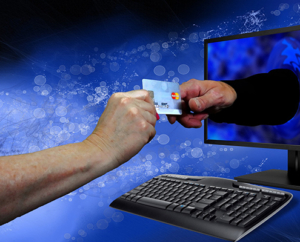8 Scams That go Beyond Pandemics
As you might know, scammers often take advantage of people during times of trouble, such as in the current atmosphere of the COVID-19 pandemic. Here are some of the scams that you should be on the lookout for:
 Account Takeovers
Account Takeovers
This is a scam where the cybercriminals take credentials obtained from data breaches to take over accounts. They are also trying to reach out to kids to give up their account credentials, as they know most of them are out of school.
Phishing
There are a lot of phishing scams out there that are taking advantage of peoples’ fears about COVID-19 pandemic. Right now, the most prolific are coming out about the World Health Organization, WHO. Preying on fears is a common tactic that people use, and when people click on links in emails that look like they come from WHO, they can get access to your devices, collect private information, and even steal address books.
Vishing
This is a tactic that scammers use to get access to people’s back account information. The scammer informs people that there is something wrong with their bank account, and that they should call a number. When they do, it is a VoIP number, and the victim can unknowingly give up their personal information, including their banking information.
Smishing
A smishing attack is similar to a vishing account, except it uses SMS instead of emails or phone calls to lure in their victims. Most of these smishing attacks are focused on the coronavirus and have a sense of urgency to them.
Social Media Attacks
Social media attacks are looking pretty legit these days, and that’s why it’s easy to fall for them. Essentially, they look like a social media post from a real retailer who is giving something away.
Fake e-Commerce Sites
There are also a ton of new fake e-commerce sites popping up, most of them claiming to sell things like masks, gloves, and other COVID-19 related products.
Rogue Mobile Apps
Fake mobile apps are also on the rise, and when downloaded, these apps can install things like spyware, malware, and ransomware on the person’s device.
Work at Home Scams
Finally, we have work at home scams, which are becoming very popular due to so many people being out of work. Often, these scams make people lose more money than they could make.
Don’t be a Victim
Here are some tips that you can use to stop yourself from becoming a victim of these scams:
- Don’t respond to any texts or calls from numbers you don’t know or that seem suspicious
- Don’t share any financial or personal information via text, email, or on the phone.
- Be careful if you are asked to share information or make an immediate payment.
- Scammers might try to spoof numbers to trick people into answering. Remember, there are no government agencies that will ask you for money or personal info.
- Don’t click on links that you get in text messages. If you get one from a friend, make sure it is legitimate before clicking on it.
- Always check that a charity is real before making any type of donation.
These cybercriminals are poised to profit from this pandemic, and they are doing all they can to take advantage of people. So, it’s important that you use caution.
ROBERT SICILIANO CSP, is a #1 Best Selling Amazon author, CEO of CreditParent.com, the architect of the CSI Protection certification; a Cyber Social and Identity and Personal Protection security awareness training program.

 The US Federal Trade Commission has added up the costs of all of these scams. They are looking from those that started from the 1st of January to the current week. What are these numbers made of? Mostly vacation and travel scams, as these have added up to $4.7 million lost. Online shopping scams are also out there, but they have only added up to $1.4 million.
The US Federal Trade Commission has added up the costs of all of these scams. They are looking from those that started from the 1st of January to the current week. What are these numbers made of? Mostly vacation and travel scams, as these have added up to $4.7 million lost. Online shopping scams are also out there, but they have only added up to $1.4 million. It is pretty unusual to see these tech giants partnering up, since they are generally rivals who are constantly working to outperform the other. This shows us that the coronavirus is a pretty serious thing.
It is pretty unusual to see these tech giants partnering up, since they are generally rivals who are constantly working to outperform the other. This shows us that the coronavirus is a pretty serious thing.























